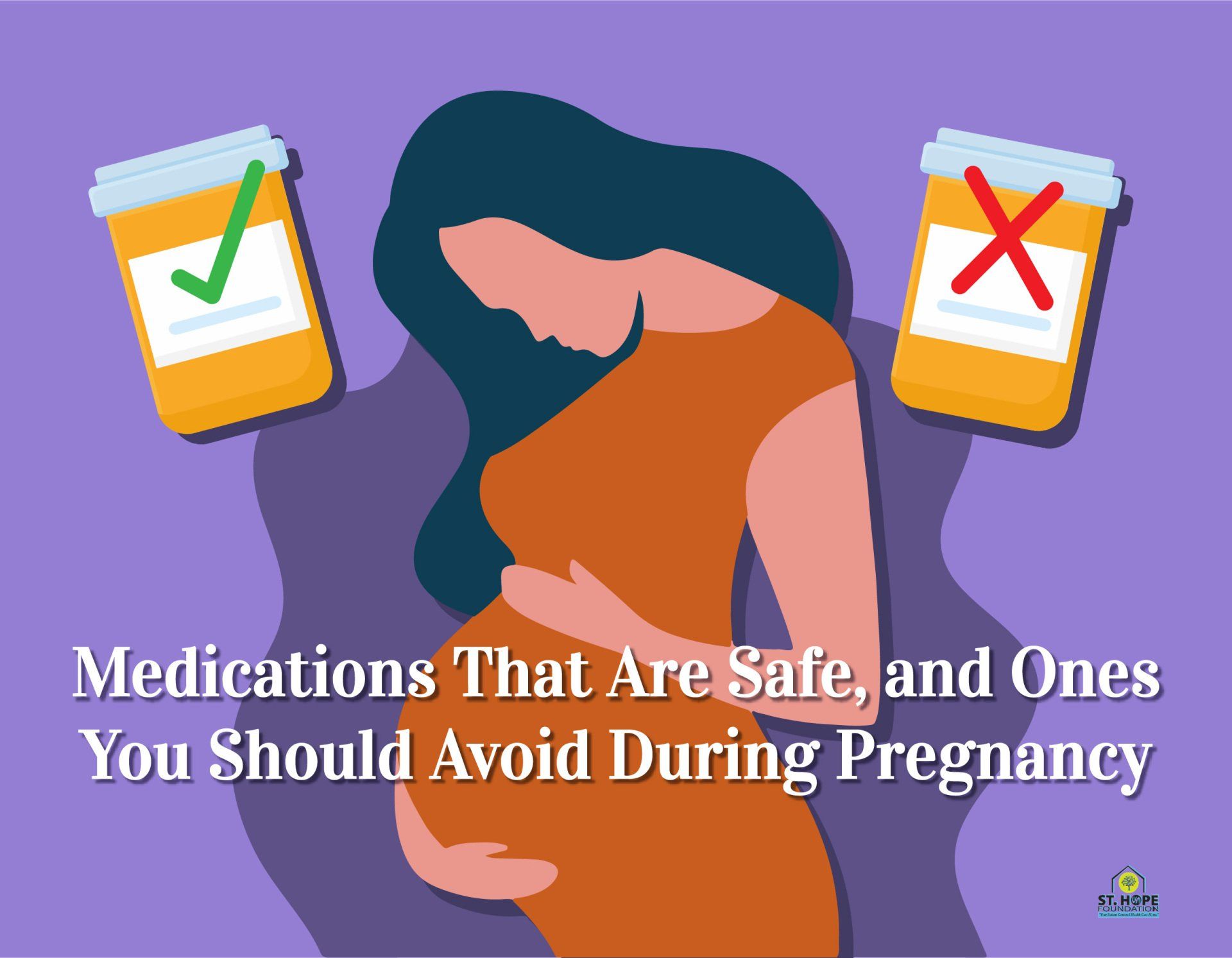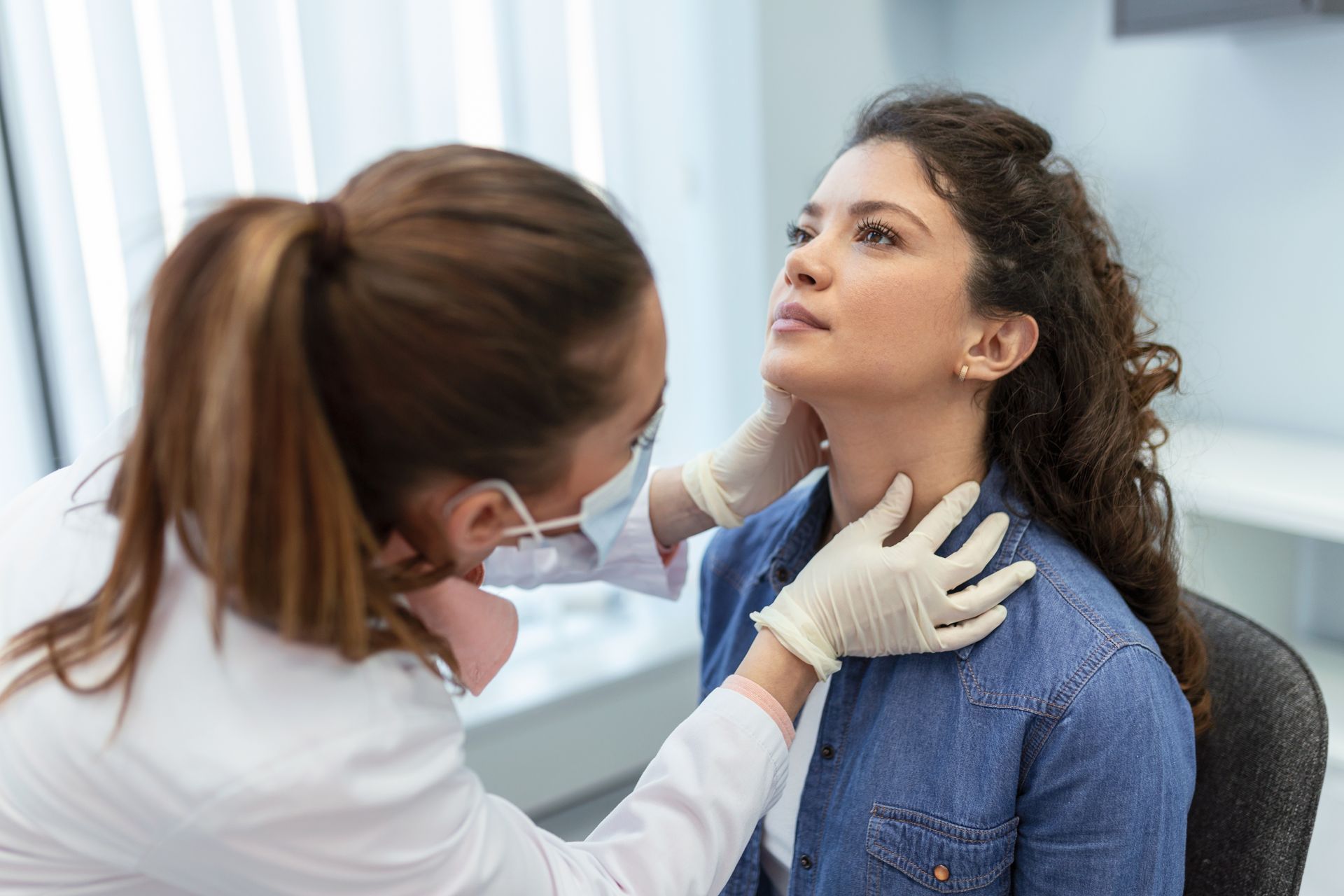Recent Posts
Medications That Are Safe and Ones You Should Avoid During Pregnancy

Pregnancy can be an exciting and special time in a woman’s life. Unfortunately, being pregnant doesn’t shield you from getting sick, suffering from headaches or getting injured. While there’s a variety of over the counter and prescription medications to treat whatever ails you, some of them are not safe for your unborn baby.
If you’re pregnant and fighting a cold or have an upset stomach, you may be tempted to reach for whatever your medicine cabinet has in store. While some medications are considered safer than others, no medication exists that is 100 percent safe for a pregnant woman and her baby.
Below are examples of relatively safe remedies as well as medications to avoid when treating common conditions like flu, headaches, allergies and more. Always be sure to consult with your doctor before taking any medication while pregnant. Practice extra caution in the first trimester, which is the most critical time for your baby’s development.
Cold and Flu
If you have a cold or you’re having flu-like symptoms, like a fever or chills, you may be tempted to treat these symptoms with over-the-counter fever and pain reducers. It may be a wise idea to simply stay in bed, drink plenty of fluids, humidify the air and let the illness pass on its own, especially if your symptoms are mild.
Safe:
- Saline nasal drops
- Salt/water gargle
- Tylenol
- Vicks Vapor Rub
- Cough drops
- Sudafed (after first semester)
Avoid:
- Nyquil/Dayquil (contains alcohol)
- Codeine (highly addictive, may even cause withdrawal symptoms in newborns)
- Benadryl
- Robitussin
- Mucinex
The last three are considered safe unless taken in Sustained Action or Multi Symptom forms.
Headache
You may be able to treat the occasional headache with Tylenol. However, avoid Ibuprofen (also known as Advil or Motrin). Ibuprofen may lead to serious pregnancy-threatening consequences, including miscarriage, delayed labor and fetal brain damage.
Allergies
Generally, pregnant women should avoid treating their allergies with pharmaceuticals. Instead, try the following drug-free remedies:
- Avoid allergy triggers (if you can)
- Vacuum everyday
- Keep your windows closed and use your AC instead
- Use an air humidifier
- Keep animals out of your room
- Avoid cigarette smoke and strong fragrances, like perfume or air fresheners
If the above remedies fail and your allergies continue to make your life miserable, you may benefit from taking Claritin, Benadryl (avoid SA and MS forms) or Zyrtec, which are considered safe to take during pregnancy. If you’re looking for allergy relief during pregnancy, you should discuss your options with your obstetrician or primary care doctor.
Nausea and Vomiting
Nausea and vomiting rarely spare a pregnant woman. Morning sickness is a common pregnancy symptom, especially during the first trimester. While your symptoms are likely to improve over the span of your pregnancy, you may still want to ease your nausea to get through the day.
Some safe options to alleviate your symptoms include Benadryl and vitamin B6.
First Aid
Over-the-counter topical ointments like Polysporin, Neosporin or Bacitracin have no known negative effects on fetuses. However, as with all medications, be sure to follow the directions and don’t use more than is recommended.
Depression and Anxiety
Depression and/or anxiety are conditions that may occur prior to pregnancy or while you’re pregnant. While many women experience immense joy when pregnant, others either continue to suffer from or develop mood swings, depression and mild to severe anxiety.
Some symptoms of depression may include insomnia, changes in weight, loss of appetite and a general lack of energy. These symptoms may be confused with typical pregnancy mood swings, but if you have a history of mood disorders or have been on antidepressants, you may need to consult a specialist.
If left untreated, your depression can lead you to neglect your health and turn into postpartum depression, both of which will negatively affect you and your baby’s wellbeing.
Overall, taking an antidepressant while pregnant is often considered safe and outweighs the consequences of untreated depression. Your doctor will likely prescribe medication at the lowest dose possible to minimize your unborn child’s exposure to the medication.
The following antidepressants are considered safe during pregnancy:
- Some selective serotonin reuptake inhibitors (SSRIs) like Celexa or Zoloft
- Serotonin & norepinephrine reuptake inhibitors (SNRIs) like Cymbalta or Effexor XR
- Buproprion (usually not the first option but still acceptable to use)
- Tricyclic antidepressants (usually the last resort if other options have failed)
Are You Pregnant and Need to See a Doctor? St. Hope Is Here to Serve You and Your Baby
If you are sick or are experiencing any issues during your pregnancy, our skilled physicians are here help you find the safest treatment options.
We invite you to take advantage of our comprehensive women’s health services, including vaccinations, screenings, birth control, hormone therapies and more.
If you are in the Houston area and need safe, affordable and reliable care, we’ll be glad to serve you and your unique needs.
Call us today at (713) 778-1300 or schedule an appointment online.









